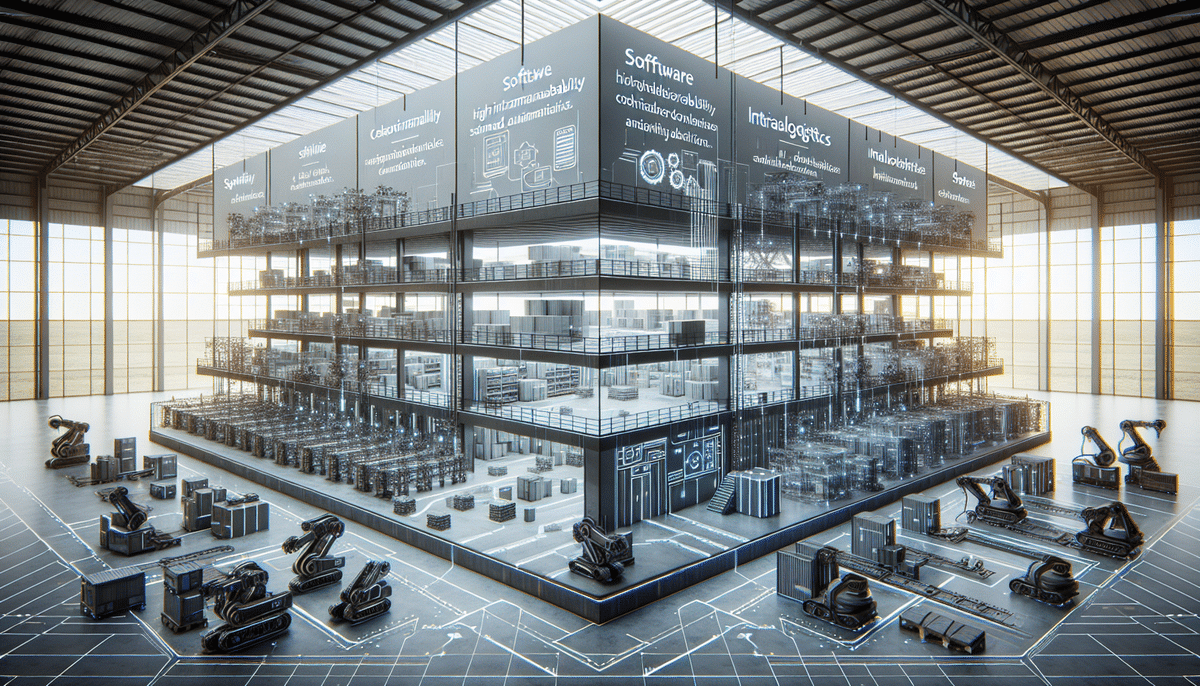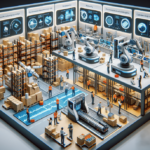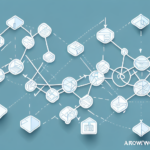Introduction to Warehouse Automation: Swisslog vs Dematic
Warehouse automation has become a cornerstone of modern logistics, driving efficiency, productivity, and profitability. Among the leading players in this industry, Swisslog and Dematic stand out for their state-of-the-art products and services. This article delves into the history, key differences, product offerings, cost-effectiveness, customer feedback, technical features, and future outlook of Swisslog and Dematic to help you make an informed decision for your warehouse automation needs.
History and Background of Swisslog and Dematic
Swisslog was established in 1900 in Switzerland as a small mechanical engineering workshop. Over the years, it has evolved into a multinational corporation operating in over 20 countries. Swisslog specializes in automated systems and software solutions tailored for hospitals, warehouses, and distribution centers.
Conversely, Dematic has its origins dating back to 1819, initially functioning as a mechanical engineering firm before transitioning into materials handling systems. Headquartered in Atlanta, Georgia, Dematic now operates in more than 25 countries, offering innovative automation solutions across various industries.
Both companies share a commitment to sustainability and reducing environmental impact. Swisslog has implemented initiatives to minimize energy consumption and waste, while Dematic offers a range of eco-friendly products and services. Their collaborative efforts are significantly shaping the future of logistics and materials handling.
Comparing Swisslog and Dematic
Key Differences in Automation Approaches
Swisslog emphasizes end-to-end solutions, providing customized automation systems tailored to each client's specific requirements. This approach ensures that the automation system aligns perfectly with the unique workflow and operational needs of each warehouse.
In contrast, Dematic adopts a more modular approach, allowing clients to select specific components that best fit their operations. This flexibility can be advantageous for warehouses looking to upgrade or expand their existing systems without overhauling the entire setup.
Product Offerings
- Swisslog: Automated Storage and Retrieval Systems (AutoStore), Warehouse Management Systems (SynQ), Robotic Picking Systems (ACPaQ), Conveyor Systems (Vectura), Goods-to-Person Systems (CarryPick).
- Dematic: Automated Guided Vehicles (AGVs), Conveyor Systems (FlexSort), Sortation Systems, Robotic Picking Systems (RapidPick), Goods-to-Person Systems.
While both companies offer comprehensive automation solutions, Swisslog tends to focus more on integrated software and robotics, whereas Dematic provides a broader range of physical handling systems and scalable infrastructure components.
Technical Features and Innovation
Swisslog incorporates advanced technologies such as artificial intelligence and machine learning into their systems, enabling predictive maintenance and optimized warehouse layouts. Their software solutions provide real-time visibility and data analytics for better decision-making.
Dematic, on the other hand, emphasizes modular design and scalability. Their systems are built to easily integrate with existing infrastructure, allowing for seamless expansion and adaptation as warehouse needs evolve. Both companies are at the forefront of integrating the Internet of Things (IoT) to enhance connectivity and operational efficiency.
Cost Effectiveness and Return on Investment
Investing in warehouse automation can significantly reduce labor costs, increase productivity, and improve accuracy. However, the initial investment varies depending on the complexity and scale of the chosen solutions.
Swisslog's highly customized solutions may entail higher upfront costs but can lead to greater long-term efficiency and cost savings by precisely aligning with warehouse operations.
Dematic's modular approach often offers more cost-effective options for smaller warehouses or those with less complex needs, allowing businesses to invest incrementally as they grow.
According to a Forbes analysis, companies typically see a return on investment within 2-3 years after implementing automation solutions.
Customer Feedback and Reviews
Both Swisslog and Dematic receive positive feedback for their high-quality products and dependable customer service.
- Swisslog: Customers commend the flexibility and adaptability of Swisslog’s solutions. However, some have noted longer wait times for technical support and a steeper learning curve associated with their software.
- Dematic: Users appreciate the reliability and user-friendly nature of Dematic’s products. The company is also praised for its responsive technical support, though some customers have mentioned occasional delays in service response times.
Overall, both companies maintain a loyal customer base and continue to evolve their offerings to meet market demands.
Advantages and Disadvantages
Swisslog
- Advantages: Highly customizable solutions, strong focus on sustainability and energy efficiency, integration of advanced technologies like AI.
- Disadvantages: Higher initial costs, complex software requiring extensive training.
Dematic
- Advantages: Modular and scalable systems, cost-effective for smaller operations, reliable and user-friendly products.
- Disadvantages: Less customization compared to Swisslog, potential delays in technical support response.
Future Outlook for Warehouse Automation
The future of warehouse automation is poised for significant advancements, with both Swisslog and Dematic leading the charge.
- Robotics and AI: Both companies are investing in the development of more sophisticated robotic systems and AI-driven analytics to enhance operational efficiency.
- Autonomous Vehicles: The integration of self-driving vehicles within warehouses is becoming increasingly prevalent, reducing the need for human intervention and increasing throughput.
- Internet of Things (IoT): Enhanced connectivity between devices and systems will continue to improve real-time tracking, inventory management, and predictive maintenance.
These innovations are expected to further streamline warehouse operations, reduce costs, and adapt to the evolving demands of e-commerce and global supply chains.
Conclusion
Choosing between Swisslog and Dematic depends on your warehouse's specific needs, budget, and growth plans. Swisslog offers highly customizable and technologically advanced solutions ideal for operations seeking tailored automation systems and sustainability. Dematic provides flexible, scalable, and cost-effective solutions suitable for a wide range of industries and warehouse sizes.
By carefully evaluating factors such as product offerings, cost-effectiveness, customer feedback, technical capabilities, and future scalability, warehouse managers can select the automation partner that best aligns with their operational goals and drives long-term success.



















